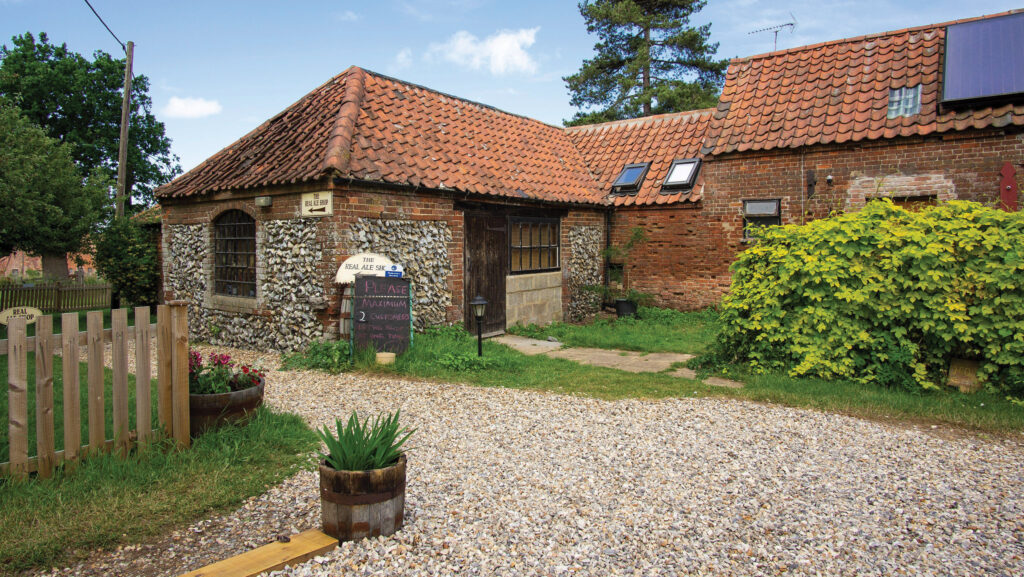Transition webinar: How to start a new farm-based business
 © Simon Annable/Alamy Stock Photo
© Simon Annable/Alamy Stock Photo In the latest of our Transition Webinar series, we look at how to diversify into a new farm-based business to help secure a stable income to support the main focus of food production.
Host Johann Tasker and a panel of experts explore the options and advise on what to look out for.
See also: See all our Transition webinars in one place
Starting out
When looking at the starting point for a new business, Jennie Wheildon says it is key to have everyone with an interest in the farm business involved at the concept stage.
Whether it is a farm shop, cafe, butchery, wedding venue, renewable energy, holiday let, education or events, it is important everyone has the chance to air their views.
So a conversation with the entire family must be held from the outset.
“If there are objections and you can’t make it work at this first step, it won’t work in the future,” said Ms Wheildon.
Kathryn Donkin advises starting with a business plan.
Initially, it can be in the form of an overview to set out what you want to achieve, finance options, expansion plans and how it might fit with the existing business.
It can also be a working document that evolves but, whatever direction this takes, it is essential to have everything written down, she says.
Situations can change, and family members may want to move in a different direction in the future.
Structuring the business
Fitting a new enterprise within or alongside the existing business is crucial, the experts agree. For example, it need not be a part of the main farm setup.
The new business could lease an area of the farm, for example, so that its finances can be managed separately, says Ms Wheildon.
Dave Oates suggests testing plans. “Start simple but test plans against a long-term outlook – 10, 20 and 30 years ahead,” Mr Oates said.
Questions to ask in the test include: is the venture going to form part of the farm or will it lease land from the business?
Or could it be entirely separate and based on land leased from another landlord?
In terms of the people involved, perhaps the new venture could be a partnership for one or two members of the family and take the risk and receive the income, says Ms Donkin.
Suitability
Look around the area to see what competition exists nearby and thoroughly assess the likely demand, says Mr Oates.
There are typical business types that farms will often look to – farm shops and building conversions for holiday lets or workshop rentals.
Planned carefully and in the right locations, these can work well.
There are key considerations to take into account. Mr Oates says a farm shop is often a popular venture.
But a farm retail business may grow rapidly, which is obviously good for income, but this must be factored into plans.
It may require increasing input with staffing throughout the week and a trained manager, he says.
It is also people-facing so you must enjoy working with the public or this could prove difficult.
Ms Donkin adds that requirements for access, car parks, toilets and rubbish disposal should be factored in with the farm’s particular setup.
The same applies with holiday lets. Traditional buildings may be appealing but they need to be suitable.
The location and planning considerations all have to be taken into account, says Ms Donkin.
Often holiday lets are converted buildings such as stone barns, which are no longer compatible with modern farming.
But conversion costs can exceed £100,000 and a large building may not have as much demand as smaller units. It is always worth looking at alternatives.
For example, rather than converting the large building, consider a cluster of shepherd huts with each one generating the same income as the barn but with half the overall development cost.
Regulations
Many of the ventures will require planning permission and conversations with the local authority should take place early on in the process and before any investment is made, says Ms Wheildon.
Food will require hygiene certificates and businesses where people are working must be clean and safe.
Any business that is selling bought-in products will need adequate access for deliveries.
Noise and pollution from visitors and delivery trucks must also be considered, especially when near residential areas.
Adding value to a building will incur capital gains tax and advice on inheritance tax issues should be sought.
While the tax implications are serious, the overall process of diversifying can be an opportunity to review the business structure and make a tax-efficient business that meets the needs of family members, Ms Wheildon concluded.
Watch the full webinar
Expert panel
Transition Project editor and webinar host Johann Tasker was joined by three experts to discuss “How to start a new farm-based business”.
The panel discussed the planning, legal, staffing and health and safety issues involved in setting up a business and where to find the necessary support to guide you through the process.
The experts
- Kathryn Donkin, director and head of Strutt & Parker’s rural team in Sussex
- David Oates, farmer and Nature Friendly Farming Network ambassador
- Jennie Wheildon, specialist agricultural lawyer Shakespeare Martineau
